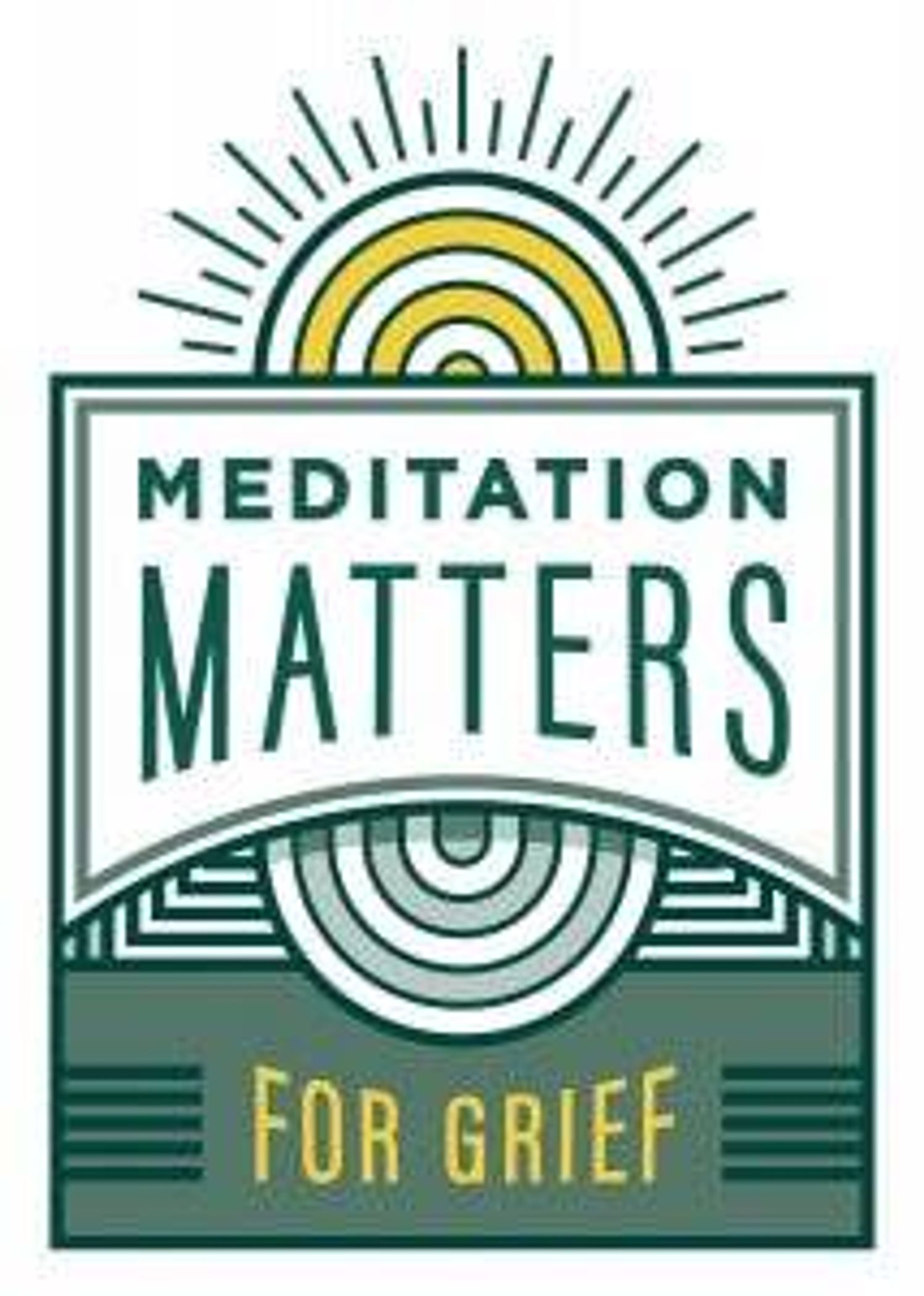How Meditation Can Ease the Path of Grieving
A writer's experience and an expert's advice
(Editor’s note: This is the third story in a four-part weekly series on meditation, including its benefits for pain management, mental health and overall well-being. The first article in the series is Do You Meditate? Here’s Why You Might Want To; the second article is How Meditation Can Help with Chronic Pain; and the fourth article is Could Meditation Benefit Cognitive Function?)


Four months after becoming sick, my husband took his last breath and my life changed completely as I went from “we” to “me” and began the inevitable, intense journey of grieving.
Soon after, a friend invited me to meditate with a group of women. But the timing wasn’t right for me. Grief takes away your ability to focus, and my mind wasn’t ready to settle down for quiet contemplation.
As a writer and journalist, I followed my instinct, researching tools that might help. Of course, it’s impossible to get a magic pill or learn something new that will remove the heartache. But mindfulness and meditation were recurring words in my research.
Mindfulness Is About Staying in the Moment
I was introduced to mindfulness through an organization in my community offering support for anyone who had lost a loved one during the one-year period after their passing.
I attended a session billed as a mindfulness practice. It involved visualization with instruction to close your eyes and think about the worst possible thing you had been through, focusing on the details of the event.
As you can guess, this didn’t go well for a woman who had just buried her husband, and flight won over fight as I bolted from the room sobbing hysterically. It was the last time I wore mascara for two years.
"When we're talking about mindfulness as it relates to grief, you have to make sure that we are thinking of the most important part of mindfulness, which is compassion for self."
Soon after the session, I learned my initial experience wasn’t exactly the goal of mindfulness.
“Mindfulness is about being awake and present to what's unfolding moment to moment,” says Heather Stang, a mindfulness speaker and author of Mindfulness & Grief: With Guided Meditations To Calm Your Mind & Restore Your Spirit. “But when we're talking about mindfulness as it relates to grief, you have to make sure that we are thinking of the most important part of mindfulness, which is compassion for self.”
Stang refers to a quote by Jon Kabat Zinn, the founding director of the University of Massachusetts Medical School Center for Mindfulness: “In Asian languages, the word for mind and the word for heart are the same word.”
“When we're grieving, we're suffering,” says Stang, who is also a yoga therapist. “I view it as grieving mindfully. You have to be tuned into how you’re doing in the moment. Mindfulness gives us that true insight into ‘How am I right now?’ And it gives us the power to choose: ‘Is the present safe for me right now?’”
In retrospect, the supposed mindfulness experience I took part in wasn’t safe for me in the moment. Lesson learned.
Meditation Is about Focus
Grief has its own complexity, because your mind is going back and forth between past and present at lightning speed, making it almost impossible to harness your thoughts. But I persevered.
Once I started focusing on being mindful in the moment, I became calmer. At that point, I felt I was ready to try meditation, and accompanied my friend to a small group of women who gathered at someone’s home once a week.
The practice was to sit for 20 minutes focusing on the breath — breathe in, breathe out — in silent contemplation, followed by 10 minutes of walking meditation, then another 20 minutes of sitting meditation.
Turns out, I wasn’t going to get this down pat without practice. I was unable to sit without fidgeting, and focusing on my breath was a challenge. These are both common for meditation novices. But for the grief stricken, in quiet times, our minds float to our deepest sorrows. I spent several evenings melting on the bathroom floor in a puddle of silent tears and tissues.
The Mindfulness-Meditation Connection
It turns out there is a connection between mindfulness and meditation, and combining them can have some wonderful benefits.
Mindfulness meditation “is a mental training practice that … brings you and your thoughts into the present, focusing on emotions, thoughts and sensations that you're experiencing ‘in the now,’" according to Verywellmind.com.
The website says that “while it can be initially difficult to quiet your thoughts, with time and practice you can experience the benefits of mindfulness meditation, including less stress and anxiety” — and, I’ll add, grief.
It also helped that I formed a bond with the women I meditated with. One woman had brain cancer and eventually passed away. Instead of being the storyteller, I was the listener, as her friends shared stories about their friendship with this special person and her impact on others.
Slowly, I incorporated meditation into my daily life as well, taking short breaks to breathe in and out and steady myself. It took some time but, eventually, I was able to tame my mind. Now, I can sit daily for 30 minutes meditating, focusing on my breath, accepting when my mind wanders off, and bringing it back to my breath again.
It wasn’t an easy journey, but learning to meditate, truly living in the moment instead of worrying what will happen tomorrow, plus focusing on the positive, helped me control my mind instead of allowing my thoughts to control me.
How Meditation Can Help With Grief
For people who are grieving, Stang sums up several ways meditation can help:
• In the early days of loss, focus and concentration meditation can help give your mind a much-needed break from thinking.
• Mindfulness-based meditation practices will help you cultivate a calm and steady presence as you open to your experience of grief.
• Compassion meditation will help you soften to your own experience and feel more connected to those around you.
• As you begin to reengage in your life after loss, more contemplative practices will help you acknowledge the ways that you have changed and rewrite your post-loss story.

